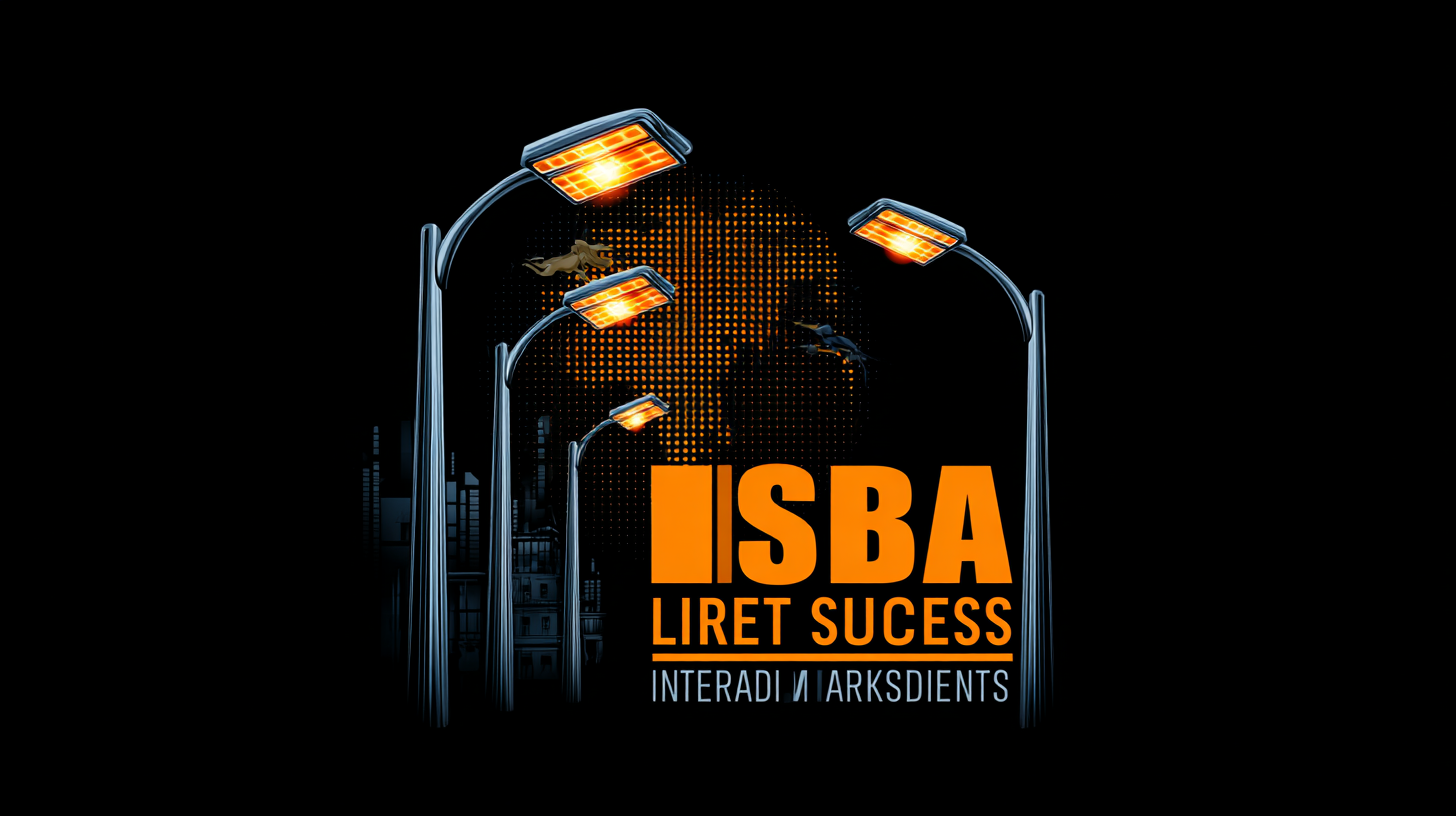Unlocking Success: The 2023 Guide to Importing the Top 5 Best Solar Street Lights Certified for Global Markets
In the quest for sustainable urban development, solar street lights have emerged as a pivotal solution for cities worldwide. As the global demand for eco-friendly lighting solutions surges, understanding the industry standards and certification processes becomes essential for successful importing. This 2023 guide aims to demystify the landscape of solar street lights, focusing on the top five models that meet international certification standards. By exploring the latest insights into industry production standards and offering practical "how-to" strategies for importers, readers will be well-equipped to navigate the complexities of sourcing high-quality solar street lights that not only enhance urban aesthetics but also promote environmental sustainability. Join us as we unlock the path to success in this rapidly evolving market.

Understanding the Different Types of Solar Street Lights Available in 2023
In 2023, the solar street light market has expanded dramatically, driven by increasing global demand for sustainable energy solutions. There are several types of solar street lights available, each serving unique needs. The most common types include all-in-one solar street lights, modular solar street lights, and smart solar street lights. According to the International Renewable Energy Agency (IRENA), the global solar street lighting market was valued at approximately $3 billion in 2022, projected to reach $5 billion by 2025, showcasing the rapid growth and interest in solar technologies.
When choosing the right solar street light, it's essential to consider factors such as brightness, battery life, and installation ease. All-in-one solar lights are perfect for quick installations, combining solar panels, LED lights, and batteries in a single unit. On the other hand, modular systems allow for flexibility with separate components, making them ideal for larger projects. Smart solar street lights, equipped with sensors and Wi-Fi capabilities, offer advanced features, enhancing energy efficiency and providing real-time data collection.
**Tips:** When purchasing solar street lights, ensure they are certified for global markets to guarantee quality and compliance with international standards. A good rule of thumb is to check for certifications such as CE, RoHS, and ISO to assure you are investing in reliable products. Additionally, consider lights with motion sensors to save energy and extend battery life, particularly in low-traffic areas.

Key Features and Benefits of the Top 5 Certified Solar Street Lights
In the dynamic landscape of solar energy solutions, selecting the right solar street lights can significantly influence both functionality and sustainability. The top five certified solar street lights stand out not only for their advanced technology but also for key features that enhance their usability. For instance, high lumens output ensures bright and efficient illumination, perfect for enhancing safety in public areas. Additionally, many models incorporate smart sensors that adjust brightness based on ambient light, making them energy-efficient choices for environmentally-conscious consumers.
Another essential benefit is the durability and weather resistance of these solar street lights. Constructed to withstand various environmental conditions, they provide reliable performance year-round, reducing maintenance costs. Moreover, the integration of solar panels speaks to the growing commitment to renewable energy, enabling users to harness natural power while minimizing their carbon footprint. With these features, the top-rated solar street lights not only improve urban landscapes but also align with global market standards, making them an excellent choice for communities aiming for sustainability.

Applications and Ideal Environments for Each Type of Solar Street Light
Solar street lights have become a beacon of sustainable technology, providing energy-efficient solutions for urban and rural lighting needs. Each type of solar street light is designed for specific applications and environments, making it essential to choose the right model for optimal results. For instance, high lumen solar street lights are ideal for busy urban areas, where bright, consistent illumination is necessary for safety and security. Their robust design and higher output cater to bustling streets and public spaces, ensuring visibility even during stormy weather.
On the other hand, smaller solar lights with lower lumen output are perfect for residential areas or parks, where ambient lighting is sufficient for walking paths and quiet environments. These lights not only save energy but also enhance the aesthetic appeal of gardens and recreational spaces. Additionally, solar street lights equipped with motion sensors are suited for remote areas, providing illumination only when needed, thus conserving energy while deterring unwanted activity. By understanding the unique advantages of each type, homeowners and city planners alike can effectively light up their surroundings while promoting eco-friendly practices.
Unlocking Success: The 2023 Guide to Importing the Top 5 Best Solar Street Lights Certified for Global Markets
| Solar Street Light Type | Certification Standards | Ideal Applications | Suitable Environments | Average Lifespan (Years) |
|---|---|---|---|---|
| Integrated Solar Street Light | IEC 62031, RoHS | Residential streets, Parks | Urban, Suburban | 5-7 |
| Split Type Solar Street Light | CE, UL | Highways, Large outdoor areas | Rural, Commercial | 7-10 |
| Smart Solar Street Light | ISO 9001, FCC | Smart cities, Emergency zones | Urban | 5-10 |
| Solar Flood Light | SAA, IEC | Construction sites, Park illumination | Industrial, Urban | 6-8 |
| Solar Garden Light | IP65, RoHS | Gardens, Pathways | Residential, Parks | 3-5 |
Comparative Analysis of Solar Street Light Alternatives in Global Markets
As urban areas increasingly seek sustainable solutions for public lighting, solar street lights have surged in popularity, especially in developing regions. According to the International Renewable Energy Agency (IRENA), the global solar lighting market is anticipated to grow at a CAGR of 20% from 2023 to 2030. This trend is driven by rising concerns over energy efficiency and the decreasing cost of solar technology, which makes it more accessible for municipalities worldwide.
When comparing various solar street light alternatives, it's crucial to analyze key factors such as lumens output, battery lifespan, and solar panel efficiency. A recent report by Grand View Research indicates that high-efficiency solar panels can improve energy conversion rates by up to 25%, significantly enhancing the performance of street lights that operate on solar energy. Furthermore, the adoption of lithium-ion batteries has revolutionized storage capacity, allowing lights to function effectively over longer periods, even in overcast conditions. The comprehensive comparison of these technologies is vital for cities aiming to invest wisely in renewable energy infrastructure.
Unlocking Success: The 2023 Guide to Importing the Top 5 Best Solar Street Lights
This chart illustrates a comparative analysis of various solar street light alternatives available in global markets based on their lumen output, battery capacity, and price range.
Factors to Consider When Choosing the Right Solar Street Light for Your Needs
When selecting the right solar street light for your needs, several critical factors should be considered to ensure optimal performance and longevity. First and foremost, assess the brightness requirements based on the area’s illumination needs. The lumen output of the solar street light will determine how well the space is lit, especially in high-traffic zones or areas needing enhanced security.
Another essential factor is battery capacity and charging time. Quality solar street lights should feature batteries that store sufficient energy to provide consistent lighting throughout the night, even during cloudy days. Additionally, look for lights equipped with efficient solar panels that allow for faster charging times. Finally, consider materials and design; durable, weather-resistant constructions will withstand the elements, ensuring that your investment lasts for years. By carefully evaluating these factors, you can select a solar street light that meets your specific requirements and delivers effective, sustainable illumination.
